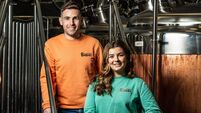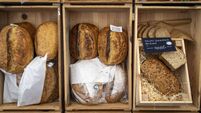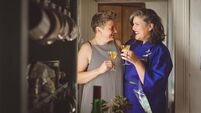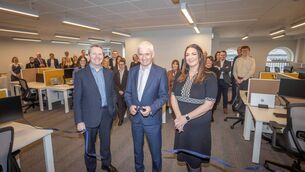The gold standard
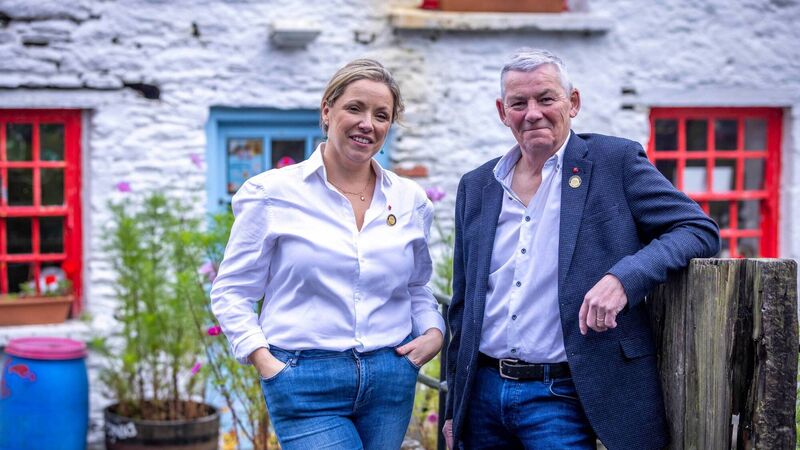
Fallon Moore and Artie Clifford, the father-daughter team at the helm of Blas na hÉireann. Photograph: Allen Kiely
We’ve all been there, standing in front of the fridge or shelf, debating which product to grab. For many of us, the moment we spot that shiny Blas na hÉireann sticker, be it gold, silver, bronze or finalist, the decision is made.
But have you ever wondered how those badges of honour land on your favourite cheese or packet of biscuits? And what goes on behind the scenes to decide which products earn that coveted seal of approval?
Often simply called The Irish Food Awards, Blas na hÉireann is widely recognised as the premier accreditation for the country’s vibrant food and drink scene. A big part of the reason they are so trusted is because
Blas is all about what’s inside the product, the flavour, the craftsmanship, and the authenticity and this is thanks to a unique product-focused approach, ensured by rigorous blind taste testing, an academic partnership with University College Cork (UCC), and a strong roster of expert judges, all of which have helped the Blas na hÉireann judging system gain growing global recognition.
This system was established 18 years ago in Dingle by Artie Clifford, a commercial fisher turned food producer. The idea for a new awards system grew from Clifford’s frustration with the lack of Irish-focused food awards.
“I couldn’t find anything that did what I wanted, and when I did, they were all very localised,” he says. So, he set out to create his own. Artie teamed up with food scientist Dr Joe Kerry from UCC, whom he knew from previous food development work. Their main goal was to build a fair and impartial system that treated all producers equally, big or small.
“We couldn’t find a system that existed to do the type of judging we wanted, at the scale we wanted, so we got to work building a new concept,” says Clifford.
Kerry brought extensive academic knowledge and experience in testing a wide range of food products with UCC. The challenge, he says, was creating a system flexible enough to fairly judge multiple food categories using the same criteria.
“We had to figure out the right questions that would bring out reliable results.” Both Clifford and Kerry insisted on blind judging; they wanted to create a level playing field for products from both large and small producers, no packaging, no product story, just taste.
Between Clifford’s dogged research and passion, Kerry’s scientific background and the support of UCC and the University of Copenhagen, they created the Blas judging system.
Clifford left behind his food production business, and the awards have since become a full-time role. Alongside his daughter, Fallon Clifford and their colleague Ali Keane, they work year-round organising the awards and related events.
Since they started back in 2008 with 36 food categories, they have since grown to over 180 categories covering a vast variety of food and drink, from the things you might expect (cheese, crackers, jams) to ones you might not (hot sauce, kombucha and nut butter) and their trusted methodology is recognised internationally.
Back in that first year in Dingle, Clifford had no trouble gathering food experts. “Dingle is a bit of a food haven,” he says. Local chefs, foodies, retailers, and food writers judged 400 products on-site.
As the awards and categories have grown, he has built an incomparable network of judges from chefs and sensory academics to food writers and experts across food and drink.
Blas judge and food consultant Annie Dunne was part of the awards from the very first year. Back then, she worked with Superquinn and would encourage producers and suppliers to enter, recognising the value it held: “I knew straight away that having that sticker meant something.”
As well as joining Blas as a judge she moved to Harrods in London as the head of product development. Her many decades of food buying, sourcing and development mean she has a unique take on judging food products, but her day-to-day tasting of products is very different to the blind Blas judging.
“Particularly during my time at Harrods, where aesthetics were so important, I was looking for first impressions, what grabs attention, what stands out, what the story was, and what the language was. But at the end of the day, that’s only one layer. To really get someone to buy something again, it’s got to taste amazing, and because Blas’ judging is all done blind, that means it’s all about the food, the taste.”
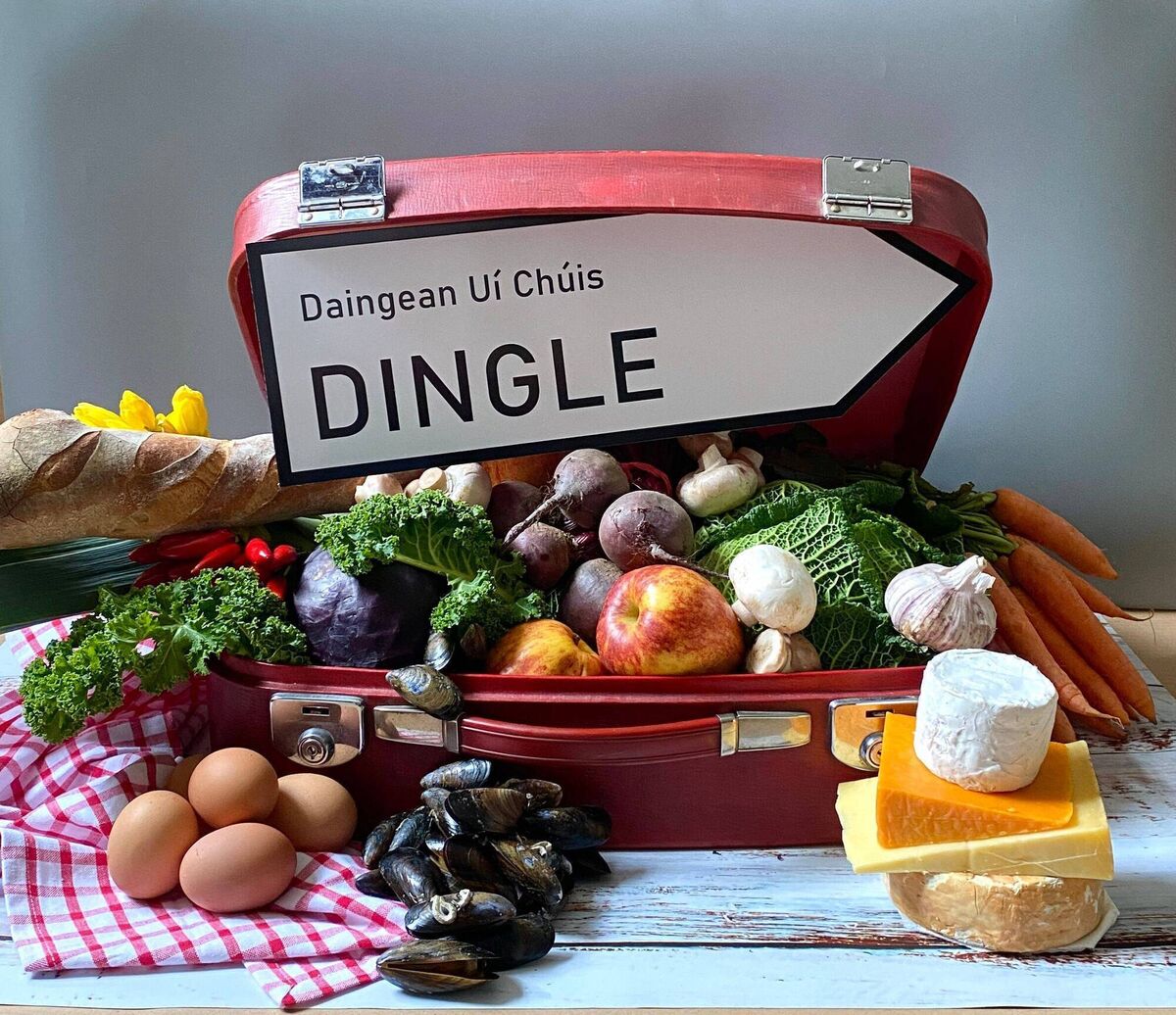
Dunne believes the blind element of the tasting gives the awards more kudos. “When everything is stripped away and you’ve just got a number to identify something and then the food or drink, you can give a really independent assessment, a proper non-biased view on what it is that makes something really good in a category.”
She has judged many categories over the years and is still always surprised and excited, especially when tasting something that has winning potential. “When you find a gold star, you just know it’s a gold star. The one that gives you the goosebumps, that gets you really excited because you’ve found a wonderful product,” she says.
Dunne also sees the benefits for the producers entering the awards, particularly the smaller ones. “They are up against bigger brands all the time, who can afford to pay lots of money for marketing and for insights and research. For smaller artisan producers, getting a Blas sticker is brilliant marketing. That badge of honour is wonderful to have because it’s independent, it’s unbiased. And on top of that, the feedback they get from the products they enter, from expert judges, is so valuable.”
It’s not just the professional benefits that keep her coming back as a judge: “The community, the passion and love that everyone has for food, the craic of course.” She has been adding to that over the last few years since she started a Blas community swim, inviting judges, producers and everyone else involved to meet up in Ventry for what is usually an icy morning sea dip. It grows each year, even when the weather doesn’t play ball, and it’s a testament to the sense of community felt by all those involved in Blas.
Another judge who cherishes the community is chef Shane Smith. He’s been part of the judging panel for seven years and agrees with Dunne that heading to Dingle for the awards is a highlight in the yearly food calendar.
“It’s a great social scene; you get to meet so many people and network and make friends,” Smith says. The judging in the months before, however, is totally food focused. This takes place in various locations across Ireland. Smith joined this year in June in Tallaght, tasting cakes, biscuits and cookies, which might sound like a dream, but the reality is a bit more serious.
“When you’re in there, it’s game face on,” he says. “There’s no chatting. You really want to do justice to everything you are tasting. I think the system is set up fairly, so that helps, but it still takes a lot of concentration and a lot of work.”
Judges score products across five criteria: appearance; aroma and flavour; texture; overall quality; and mass appeal. Kerry says that when they developed these parameters, it was important to have a mix of subjective and objective questions. Then the judges score each from zero to a maximum of 12, and they must not confer during tastings, as each score must be independent. Scores are collated, and the top five entries in each category become finalists, with gold, silver, and bronze awarded in order.
Over the years, the core philosophy and judging parameters have stayed the same, but what has changed, thankfully, says Clifford, is how they run things. “Before Covid years, all the judges gathered in Dingle for the week leading up to the awards. There was a lot of paperwork and a lot of people.”
Lockdown forced them to rethink operations, and now they have a much more streamlined approach. Judging happens months before the awards are announced and takes place around the country. The results are entered digitally, allowing real-time access to scores.
Once the scores are in, Smith says the judges are usually ready for a debrief. “If you know you’ve tried something really special, you’re bursting to talk about it, because we can’t confer as we’re tasting. It’s funny, year on year, we usually all come out wanting to talk about the same top products. Quality always stands out.” He’s also taking note of favourite products he comes across for his own shopping basket.
“I love learning about new suppliers, new ingredients, new products. A big bonus is discovering new products to look out for, and if there’s something I really like, we can sometimes take the leftovers home, even though you’re not in the least bit hungry when you finish judging.”
Any surplus food, when it’s not snapped up by the judges, doesn’t go to waste. The Blas team routinely work with local charities like Penny Dinners in Cork and Morning Star hostel in Dublin. Clifford says it’s an important consideration.
“Once we have tasted, we try to move any surplus on as fast as we can to minimise any waste. Producers have worked hard to get their samples to us, and we want to be sure that once it has gone through the tasting process that it can go on to benefit others.” Partnerships like this are not only practical, but they also embody the community spirit at the heart of Blas.
Blas has always been far more than stickers on jars; that has been Clifford’s vision from day one. A self-confessed failed food entrepreneur, Clifford says that although he can’t give a step-by-step recipe for success, he’s familiar with the pitfalls. “I’ve made all the mistakes, so I can tell people what not to do.”
To tell people what to do, he leaned on his extraordinary network of people to create Backyard at Blas, a series of talks held throughout the awards weekend. This year’s programme, supported by Bank of Ireland, covers everything from what happens when a product goes viral to navigating regulations, tariffs, exports, branding, trends, and consumer expectations.
Industry experts, press and buyers share invaluable advice, while past finalists and winners open up about life-changing wins and the lessons learned from near misses. Clifford is proud to have this as a cornerstone of the weekend, as it reflects what Blas is really all about: collaboration.
